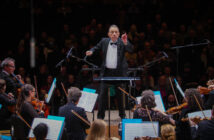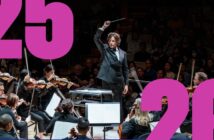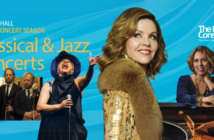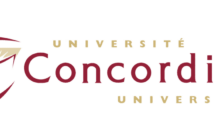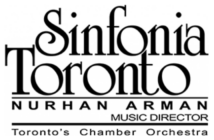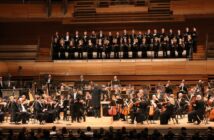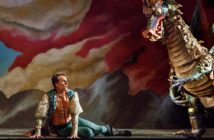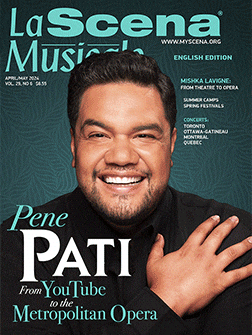
This page is also available in / Cette page est également disponible en:
![]() Francais (French)
Francais (French)
Peter Simon has come full circle, and then some. His own musical journey began as a piano student of Boris Berlin, at The Royal Conservatory of Music (RCM) in Toronto. Simon went on to study piano at The Juilliard School, and later at the University of Michigan, where he earned his doctorate studying with Leon Fleisher. Simon describes Fleisher as “the teacher who I had always sought … one of the greatest musical minds I had ever met.” Although he could never have known it at the time, Simon’s relationship with Fleisher would inspire him as a musician and arts leader for years to come.
Simon’s journey from performer to administrator can be traced through a series of “serendipitous, unplanned” events. In 1989, he was encouraged to apply for a job in New York City, at the Manhattan School of Music. Applying was an “experiment,” he says; he didn’t even know what the job was. Following an interview, he was asked to be president. Simon had “virtually no management experience,” but he had “the right type of character for the job,” as well as a strong belief in the power of music and music education.
Two short years later, in 1991, Simon returned to Toronto, this time as the president of the RCM. His homecoming was under “unusual circumstances” though, as the institution had recently become independent, and was “severely financially challenged.” Simon saw this as an opportunity to “find possibility,” to channel his “fundamental optimism,” and “get people excited. I’m not a fantasist,” he laughs, “but I’m a dreamer”—and dream he did.
Simon’s vision for the future of the RCM was unique among Canadian music schools. “Seven days a week, year-round,” he set out to create a space that made high-level music education available to students of all ages, both in Canada and beyond.
This has involved the development of numerous initiatives, including the creation of Learning Through The Arts (LTTA); the launch of The Glenn Gould School (GGS), the RCM Certified Teacher Program; the Digital Learning division; the restructuring of the Taylor Academy; the founding of the ARC Ensemble; the building of Koerner Hall; the establishment of The Marilyn Thomson Early Childhood Education Centre and the Artist in Residence programs, and the renaming of the RCM’s community school, now the Oscar Peterson School of Music.
In 1997 – early in his tenure – Simon oversaw the inauguration of The Glenn Gould School (formerly The RCM Professional School). He felt deeply passionate about the project and its philosophy, having been a musician and music student himself.
“The student/teacher relationship is so important,” he notes. “Students need a lot of time with their teachers—they need to drill into details with their teachers to learn how to do that work themselves.” At GGS, students receive highly individualized attention in a small, supportive setting. With 1½ hours of one-on-one instruction every week, in addition to masterclasses, rehearsal and performances, the around 130 students receive their top-tier music education in a personal, community environment.
The international reputation of GGS is among the accomplishments Simon feels most proud of, he says, noting how exciting it has been to “see the success of graduates all over the world, knowing that GGS has guided (them) to these places.” GGS is playing an active role in situating Canada on “the global musical stage,” he says.
Simon also takes great pride in Koerner Hall, which was completed in 2009 as part of the TELUS Centre for Performance and Learning. “Toronto—and Canada, more broadly—didn’t have a great recital hall,” he says. “Music lives or dies on the quality of the sound, and the feeling of the environment in which it’s being performed. Orchestral music,” Simon adds, deserves to be experienced in “an acoustically perfect hall.” With its impeccable sound, and intimate size, Koerner Hall filled a crucial gap in the Canadian classical musical landscape. “International artists love it; they all want to play in Koerner,” he says.
Accessibility has been at the heart of much of Simon’s work with the RCM. At GGS, most students receive a full-tuition scholarship. The Marilyn Thomson Early Childhood Education Centre provides parents with digital tools for music education, which they can use anywhere in the world. The Oscar Peterson program, says Simon, “has the capacity to provide an outstanding music education to people who don’t have the means.” He finds this work “extremely rewarding. It’s life-changing for these kids.”
Simon describes Peterson, who was honoured by the school’s name change in 2021, as “a fantastic person and musician—one of Canada’s greatest artists ever. He believed classical music training was the basis of instrument learning.” Memorializing the jazz legend by putting his name on the music school therefore felt appropriate.
In many ways, the RCM goes beyond the activities of a conventional music school. The ARC Ensemble is a perfect example of this: a chamber group consisting of RCM faculty members, alongside some graduates, the group has performed across North America, Europe and Asia, and has recorded seven albums. They have also played a major role in conducting research on, and reviving, musical works lost in the Holocaust.
In August this year, Dr. Peter Simon will step down from his role as President and CEO of the RCM. The vastness of his accomplishments is quite unbelievable. What drives him? Simon says it comes down to his love of—and belief in—the music. “You have to be a true believer,” he says. “The thing about music-making is it takes you to this other place—a beautiful place. Sometimes the world is not that beautiful; the musical realm puts that beauty back into you.”
Although his time with the RCM may be coming to an end, Simon will keep the music close, be it by attending concerts at his beloved Koerner Hall, or by playing his favourite pieces of the moment at his annual birthday performances. As he puts it: “I absolutely love music—I love playing it; I’m always listening.”
Students of The Royal Conservatory of Music will perform at New York City’s Carnegie Hall in a première international engagement on May 7. For more on this concert, the RCM’s various initiatives, and on Dr. Simon, visit rcmusic.com/Carnegie
This page is also available in / Cette page est également disponible en:
![]() Francais (French)
Francais (French)





